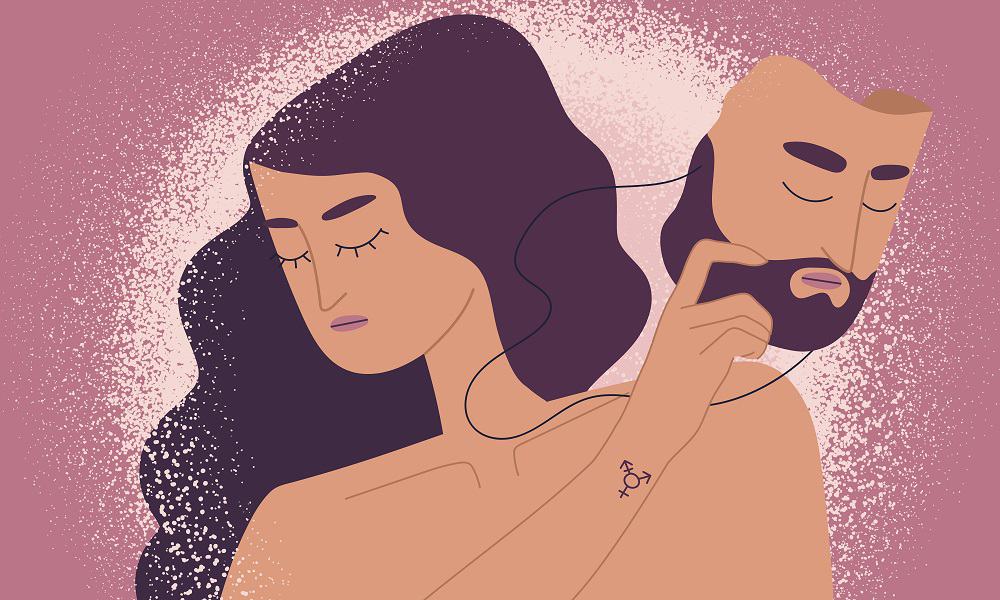
What Zaya and Bobrisky’s lived experience can teach us about trans people
Basketballer Dwyane Wade sat with Ellen Degeneres, arguably the most influential talk show host in the world, and explained in simple terms why his second child, Zion has chosen to change her name to Zaya & use female pronouns.
Her journey in some ways, mirrors that of Nigerian public personality, Idris ‘Bobrisky’ Okuneye, who lived as queer for 3 years before finally announcing through an Instagram Live session that she was transfeminine in 2019.
Both are rare occurrences; because of a toxic cocktail of cultural influences, misogyny and homophobia. There are very few black public personalities abroad and in Africa who are publicly navigating the process of coming to terms with their transfeminine identity, and still maintain their mainstream access and appeal. Their individual journeys bring up a number of important discussions we need to have about people who do not identify as their birth gender.
Unlike Bobrisky, who faced and still faces intense discrimination because of her identity, Dwyane Wade and his family have been incredibly supportive of their daughter. They have listened to her and advocated on her behalf, going public with her gender identity when she was ready to live publicly as a trans person.
Until Zaya decided to change her pronouns, she was an ‘egg’, a term people in the trans community use to describe someone who is aware that they are trans but is yet to make any public actions in affirming their true identity. By choosing to change her pronouns, Zaya has chosen to leave her egg state behind. The Wade family has hinted that Zaya might not take any further actions to affirm her identity until she is an adult.
In contrast, Bobrisky began her journey towards embracing her transfeminine identity by bucking gender expectations. This decision led to a lot of questioning about her sexuality, often framed in the reductive binary of straight vs gay. For a long time, people assumed she was doing this because she was closeted, but now we know that she refused to accept those labels because they didn’t define her reality, and she didn’t feel supported sufficiently by the community around her to publicly embrace her transfemininity. For her, it was enough that she publicly lived as female and changing her pronouns at that time was not a primary concern for her. It was not until she surrounded herself with a chosen family that she ‘came out’ and asked for her new pronouns to be respected.
Taking that leap is not easy for everyone. Some people struggle with their trans identity for years and stay in an egg state until their 30’s, 40, or even 60’s. Others accept their trans identity but feel no pressure to leave the egg state and so do not change their pronouns or initiate any of the physical actions that publicly affirm their true gender identity.
Choosing to stay an egg doesn’t invalidate a person’s identity as a trans person. Choosing to leave the egg state as young as Zaya has, doesn’t mean the person is being pressured to perform their true identity; it just means they have come to a place of acceptance much sooner than others.
Every person’s journey is different, and as friends and allies, we must respect that difference.
Another take away from their journeys is the power of allies. Both Zaya and Bobrisky are able to live full lives today because they are surrounded by a core family of supportive allies, biological and chosen. Our role as allies is to create a safe environment for the queer people in our lives. Dwyane Wade wants his daughter’s identity to be respected, but he understands she currently doesn’t have the tools or influence to make this happen herself. His family advocates for her, preparing a world that is ready to receive her.
He uses the tools at his disposal, seeks advice from the LGBTQ+ community & listens to his daughter as she decides what steps she is ready to take. Bobrisky’s chosen family affirms her identity and offers safe spaces to express the full spectrum of her identity. Perhaps, if Bobrisky had the kind of support Zaya has, she might have embraced her transfeminine identity sooner.
An environment of unconditional acceptance is what every person coming to terms with their sexuality and gender identity needs. Our collective job as allies, to provide that for them.
Do you have questions about gender identity and want to be better informed? Share it with us via the comment section and our moderators are available to answer.

u can beat me but i won’t…
u can beat me but i won’t shut up
We love your zest for life…
We love your zest for life Anonymous and admire your vigor to fight for what you believe in! Keep doing you, have an amazing week ahead and stay safe!